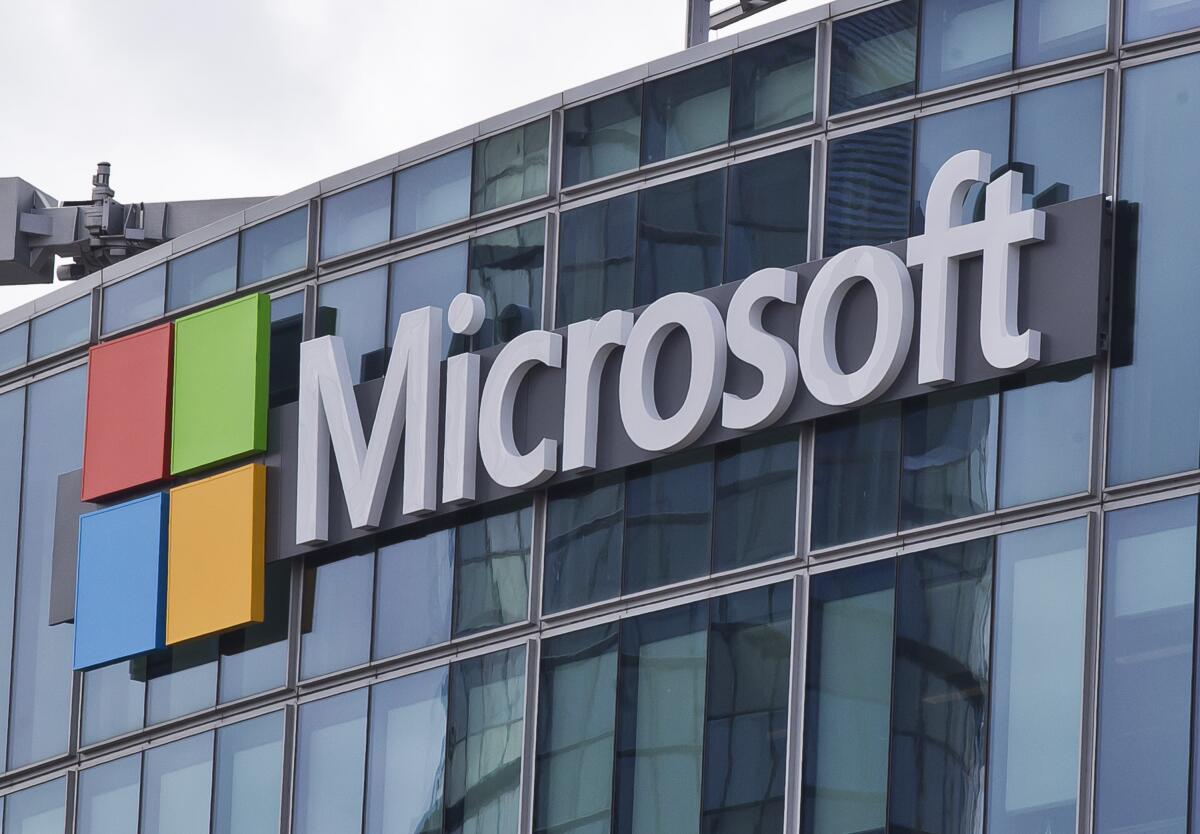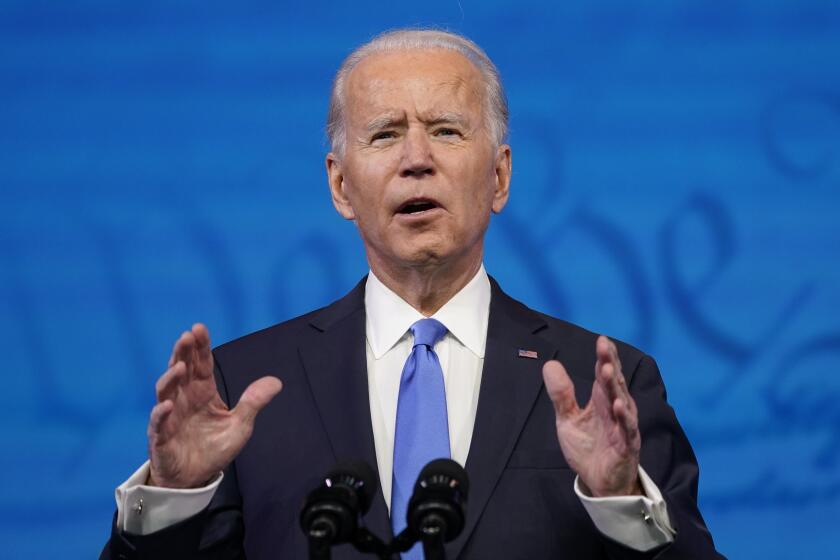Microsoft says suspected Russian hackers viewed source code

- Share via
Microsoft Corp. said the suspected Russian hackers behind the stunning breach of numerous U.S. government agencies also accessed the company’s internal source code, although no customer data or services were compromised.
“We detected unusual activity with a small number of internal accounts and upon review, we discovered one account had been used to view source code in a number of source code repositories,” Microsoft said Thursday in a blog post that gave an update on its continuing investigation of the attack. “The account did not have permissions to modify any code or engineering systems and our investigation further confirmed no changes were made.”
A Microsoft spokesperson declined to say which source code the hackers viewed. Source code shows how computer programs work and is used to build products. Gaining access to such code could have given the hackers valuable insight into how they might exploit programs or evade detection. Microsoft said its security philosophy, or “threat model,” anticipated that its source code would be viewed and that defenses were built with that in mind.
All fingers are pointing to Russia as the source of a punishing hack of U.S. government agencies.
Microsoft had previously said it, too, had received a malicious update of software from information technology provider SolarWinds Corp. that was used to breach government agencies and companies around the world. The details of the campaign are still largely unknown, including how many organizations were victimized and what was taken by the hackers. Bloomberg News reported in December that investigators had determined at least 200 organizations were attacked as part of the campaign.
Microsoft said the hackers didn’t use the SolarWinds update to reach the internal account, but the company declined to elaborate on exactly how the attackers gained access. It also didn’t specify in the blog post which code repositories were accessed, or how long the hackers were inside the company’s network, but reiterated that there was no indication its systems were used to attack others.
“This activity has not put at risk the security of our services or any customer data, but we want to be transparent and share what we’re learning as we combat what we believe is a very sophisticated nation-state actor,” the company said.
More to Read
Inside the business of entertainment
The Wide Shot brings you news, analysis and insights on everything from streaming wars to production — and what it all means for the future.
You may occasionally receive promotional content from the Los Angeles Times.











